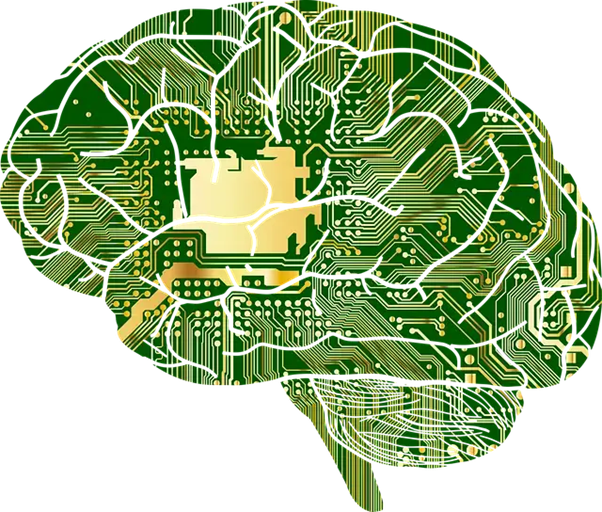Qualifications to consider
There are a range of qualifications that would benefit individuals moving into AI and Machine Learning. If you have goals to become an artificial intelligence engineer, you should look into the following:
Bachelor’s Degree in an AI-related field
AI-related fields include Computer Science, Data Science, Cognitive Science and Mathematics. Earning a Bachelor’s through any one of these fields is a great (and sometimes necessary) first step towards working in AI and Machine Learning.
Master’s Degree
While it is not a necessity to have a Master’s degree, earning one in the above fields can give you a much deeper understanding of the workings of AI, and the ethics behind creating or working with artificial intelligence.
AI-related qualifications and accreditations
There are a host of online courses that can provide qualifications and accreditations which will provide insight into how to work with artificial intelligence and Machine Learning. Qualifications gained from these courses are the perfect accompaniment to your Bachelor’s and Master’s degrees.

What can I learn on an AI program?
Participating in an AI course will set you well on your way to an AI-led career. In these courses, you can expect to learn a number of basic and complex principles that you will call back to throughout your working life. These include elements such as:
- Pre-calculus and higher level calculus for Engineering
- Principles of Computing, Data and Algorithms
- Programming
- Statistics
- Database Systems
- Ethics in Computing
- Web Application Development
- Data Structures and Algorithms
- Information and Cyber Security
- Computer Networks
- Understanding Artificial Intelligence
- Algorithm Analysis
- Research Innovation and Intellectual Property
For more information on what you could learn from an AI program, take a look at our Bachelor’s in Computer Science program today.
Machine Learning Engineers - This role, which is currently in incredibly high demand, requires you to have knowledge and skills to design, build and deploy an AI.
AI Ethics Specialists - This vitally important role would require you to have a good understanding of philosophy alongside computer sciences, so you can ensure the ethical construction and learning of AI. If you’re interested in the Ethics of AI, we recommend looking into the Responsible Artificial Intelligence Institute, who are at the forefront of AI Ethical research.
Data Scientists - Data scientists must be able to process huge amounts of data, and as such a highly analytical brain is required.
AI Researchers - AI researchers help to develop new models and algorithms, by researching and building upon current models.
Robotics Engineers - Robotics engineers must have a wide range of knowledge in both computer sciences and electrical and mechanical engineering. Their role is to ensure the integration of AI and robotics is completed successfully. Many robotics enthusiasts will have heard of the Boston Dynamics AI Institute, one of the leading robotics institutes in the world. Their news section offers a host of useful information that budding robotics engineers will find helpful.
Natural Language Processing Engineers - Natural Language Processing Engineers analyse natural language datasets to help in the creation of algorithms and models that allow AI to have a better grasp on human languages.
Computer Vision Engineers (CVs) - The responsibility of the CV is to help AI and computers ‘see’ image and video data. They do this by creating algorithms and models that help the AI understand what it is seeing and make decisions accordingly.
Deep Learning Engineers - Much like machine learning engineers, deep learning engineers will work with artificial intelligence that is programmed to have neural networks, which are designed to mimic the human brain and its thought processes. The deep learning process can be much more time-consuming than machine learning, but can also produce much more effective results.
AI Product Managers - AI product managers very much steer the ship on AI projects, offering guidance and support, sharing data and information, and having a good idea of what users need and what the product requirements are.
The state of AI research
AI research is currently booming, and it is expected that those who study artificial intelligence and machine learning now will benefit greatly from that boom in the coming years. Thanks also to this boom, AI research is currently considered a very secure industry to be a part of, thanks to the ever-evolving nature of AI and machine learning, and the many benefits that AI can provide for the planet and humankind.
The most recent reports published by Grand View Research projects that by 2025, the global artificial intelligence market will reach up to 390.9 billion dollars. It is highly expected that AI will be a huge market driver for the next few years and beyond, with the likes of drone technology, logistical robotics, and self-driving cars benefiting from increased image recognition through the continued work of computer vision engineers in those industries.
Through continued AI research, we can expect to see huge positive impacts throughout human society. A clear example of this, but certainly not the only one, is that AI will be able to relieve people of repetitive and dangerous tasks, which can not only prevent long-term and short-term injury, but also improve efficiencies in many industries. In freeing up these tasks, humans will be able to engage in and take ownership of roles and pursuits more suited to their natural tendencies like leadership, empathy, and creativity.
There is still a long way to go, though, for AI and machine learning, and we are still in the early stages of what is expected to become a part of our everyday lives. That is why it is vital that we encourage young people who have an interest in AI and machine learning to jump into the industry, and help to define it further.
Effat University is a leader in artificial intelligence research. To see our published research explained in simple terms, explore our Research News section.
Where can I learn more about AI?
Artificial Intelligence will be a popular topic for the foreseeable future, and there are already many resources available to help you continue your AI learning.
Students looking to study AI or already on the Computer Science program should also join us at the 2023 Learning & Technology Conference if possible, where a range of speakers and exhibitors will share their knowledge on AI, the blockchain, augmented reality, virtual reality, 3D reconstruction, and other emerging fields.
Effat’s Computer Science repository is also free to view, and features faculty research and publications on AI, covering topics like Utilising Artificial Intelligence techniques for medical image analysis, Artificial Intelligence in the Brain Computer Interface, Artificial Intelligence and machine learning research on a global scale, and much more.
The Alan Turing Institute also has a fantastic program available on Artificial Intelligence, that offers a wealth of knowledge on the subject, including the Safe and Ethical use of AI and Robotics, with research in those areas and more very much still ongoing.

![]()
Next steps
AI will play a key role in almost every modern industry in the future, including healthcare, fashion, logistics, marketing, the environment and sustainability, information technologies, and many more. This means that you can not only work towards a promising career in AI research, but you can find roles in and apply that research to other industries that you might be passionate about.
To reach that point though, you need to understand your next steps and determine the best way to join this future-proof industry.
At Effat University we offer Bachelor’s degree programs in Computer Science, with an emphasis on Artificial Intelligence and cyber security. Joining the Effat family and taking part in this program is a great first step towards a fulfilling career as an AI researcher.
